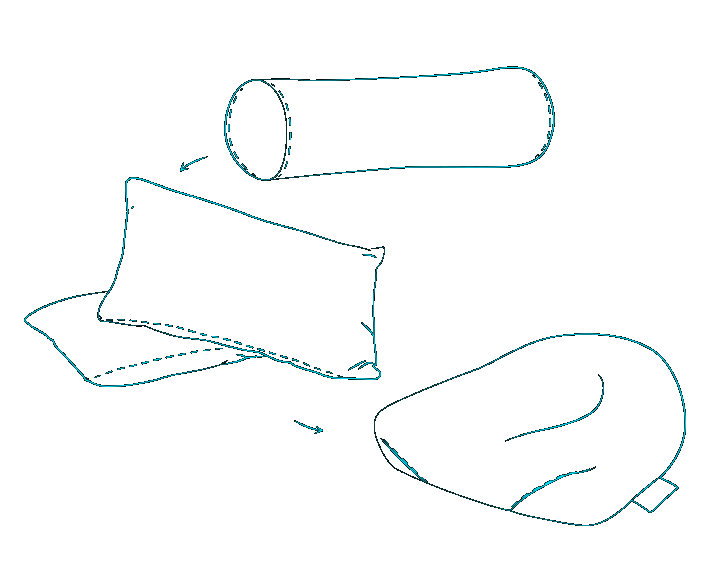To provide services at the highest level, we use cookies. Using the website requires you to choose settings related to their storage on your device. If you want to know what each type of cookie is used for, click the Details button below.
Sleeping position and the pillow – how to choose?10 stycznia 2022 |

Sleeping on the left side is the healthiest sleeping position.
The most common sleeping positions are side sleeping, back sleeping, and stomach sleeping. Besides these, there are other sleeping positions, such as the roadkill position. However, they are not widely practiced. Approximately 93% of people sleep in a side or back position.
The healthiest sleeping position is on the left side. Sleeping on the left side allows for optimal functioning of the circulatory and digestive systems, resulting in better health and rest. It provides the body with the best opportunity for regeneration.
Sleeping on the stomach is definitely not recommended. Sleeping on the right side is also not advisable. Sleeping on the right side puts excessive pressure on the stomach and pancreas, and it can cause circulation-related difficulties. Sleeping on the stomach additionally leads to excessive rotation of the cervical spine and unnatural alignment of other spinal segments. Both of these sleeping positions are not recommended.
Sleeping on the right side is not recommended because this sleeping position forces the heart to pump blood against gravity, weakening the circulatory system. Additionally, it increases the pressure within the abdominal cavity, resulting in organ compression and slowing down the digestive processes. Moreover, sleeping on the right side can cause reflux and even lead to insomnia.
Sleeping on the left side is recommended because this sleeping position relieves the burden on the heart, strengthening the circulatory system. It also maintains physiological pressure within the abdominal cavity and allows organs to function freely. Sleeping on the left side improves digestion and enhances the body's regenerative abilities.